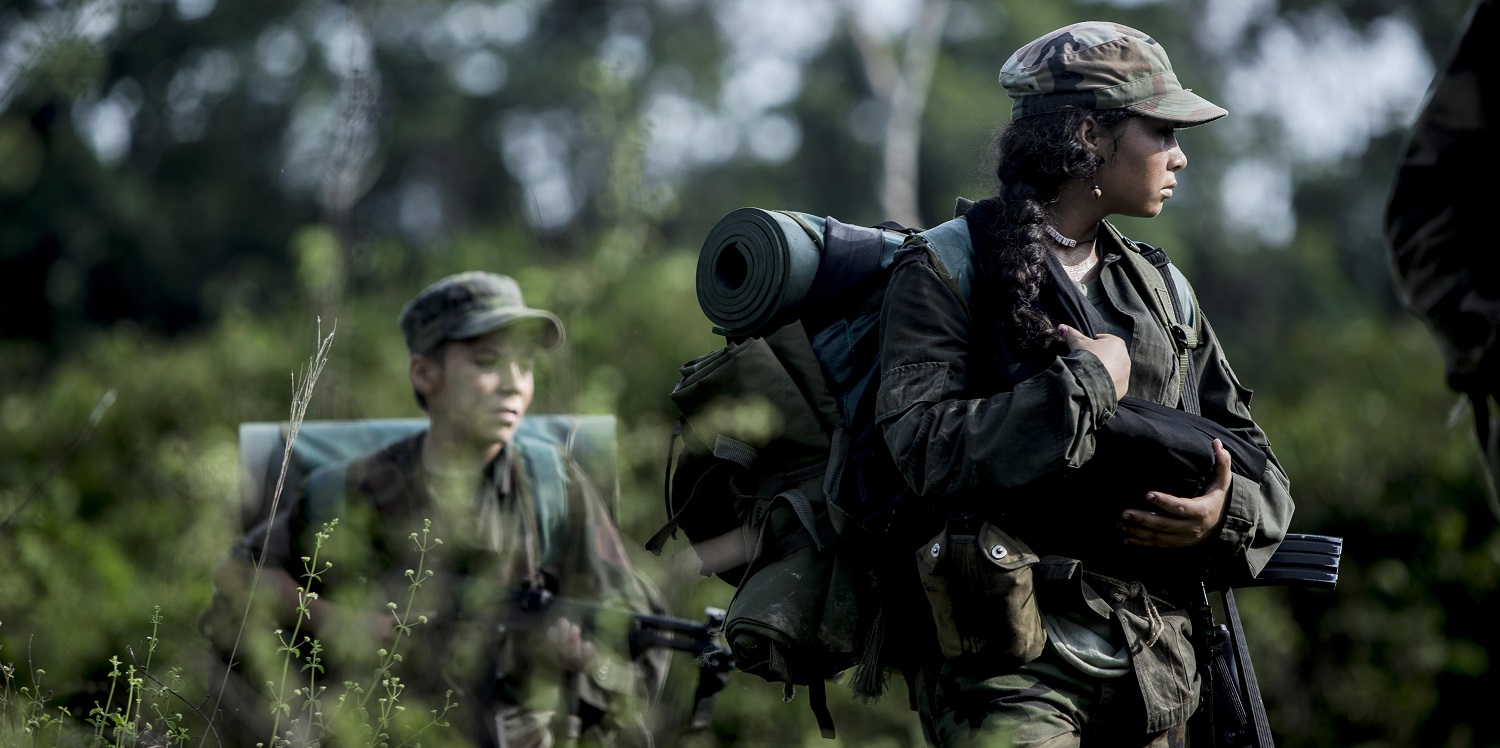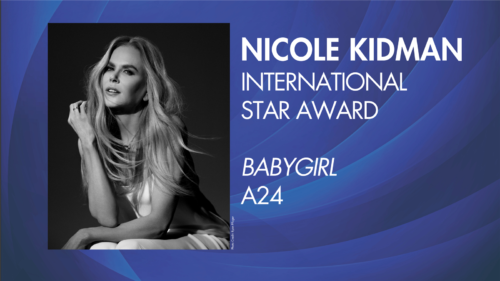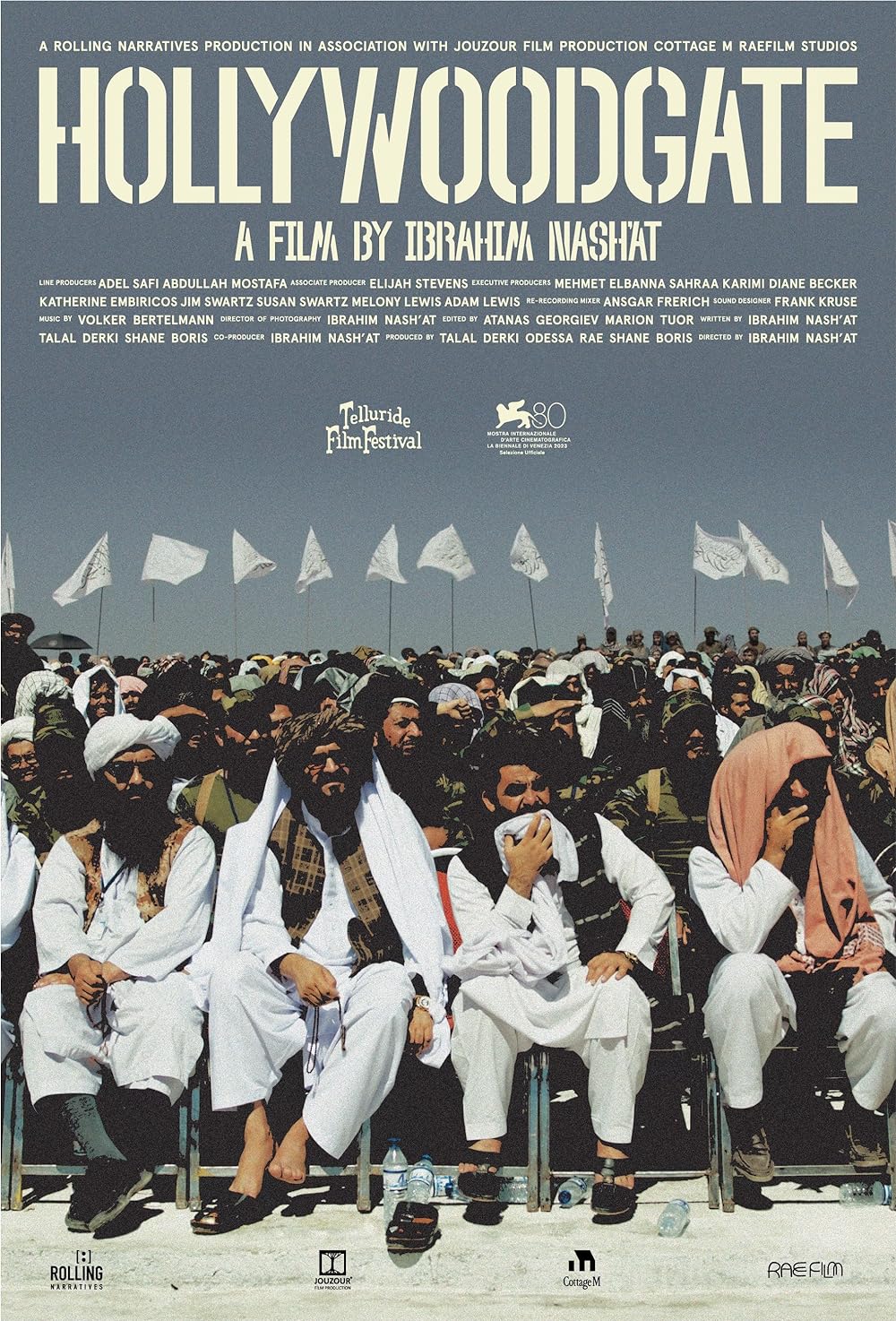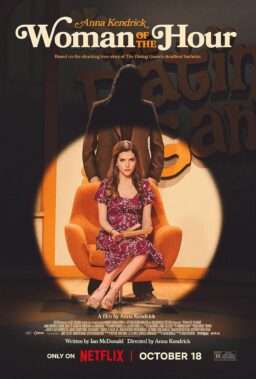Motherhood and combat are at the center of José
Luis Rugeles' "Alias María," a Colombian entry in the Un Certain Regard sidebar
at Cannes. Set amidst a violent conflict between a right-wing militia and a group
of leftist guerrilla warriors (referring to each other as "comrades"), the film
tells a story of a young female soldier forced to take care of a baby born by
another woman from the same troop—even as she discovers she is pregnant
herself and tries to avoid the abortion demanded by the higher-ranking
officers.

Most of the film depicts a long forest trek of María
(Karen Torres) and a group of fellow soldiers, including a teenage kid. They
all struggle under enemy fire and the tension mounting between them becomes as
palpable as in the best combat movies, from "Bataan" onwards. The style of the
film tries to make the audience experience the physical surroundings of the
forest in all their aural and visual intensity. Close-ups of marching insects
abound, mirroring the images of the characters soldiering on despite all
adversity. At times, musical score kicks in with cues that are a bit too
generic and persistent, but overall the film provides a convincing immersion
into the brutal world of its characters.
The constant presence of the baby infant,
carried through the forest by María and sheltered by her from adverse
conditions and swooshing bullets alike, is what makes the film truly memorable—we are not accustomed to seeing babies in war settings. Here, just like in
James Cameron's "Aliens," a female soldier is doubly tested by the demands of the battlefield and of nurturing an infant, which doubles our emotional investment
in what we see.
The titular character is mostly silent; we
don't get to hear her concerns, or even learn what pushed her to join the
guerrilla troops in the first place. María is far from fearless—there's a strong
sense of constant anxiety governing her every action, and the concern she has
for the baby never leaves her tense, unsmiling face. Upon learning that the
brutal male officer wants her to have an abortion in order for her to keep on
fighting, María stands up for herself and starts a struggle that drives the
rest of the film, right up to its desperate, defiant last shot..
The film is by no means perfect—the situation
of military conflict is barely sketched and could use some fleshing out, as
could some of the supporting characters assisting María as her fellow-soldiers.
Still, there's a raw power to Rugeles' vision that's difficult to shake off, as
well as honesty that makes it stand out in the festival onslaught of highly
calculated fare. By the end of the story, María is all the stronger for the
adversity she fought against and the care she offered to the baby amidst
military mayhem. What we are left with is an image of a woman gaining
self-knowledge and developing courage in a way that's often understated but
nevertheless powerful. In a word, the movie would make for a perfect double
bill with "Mad Max: Fury Road".












